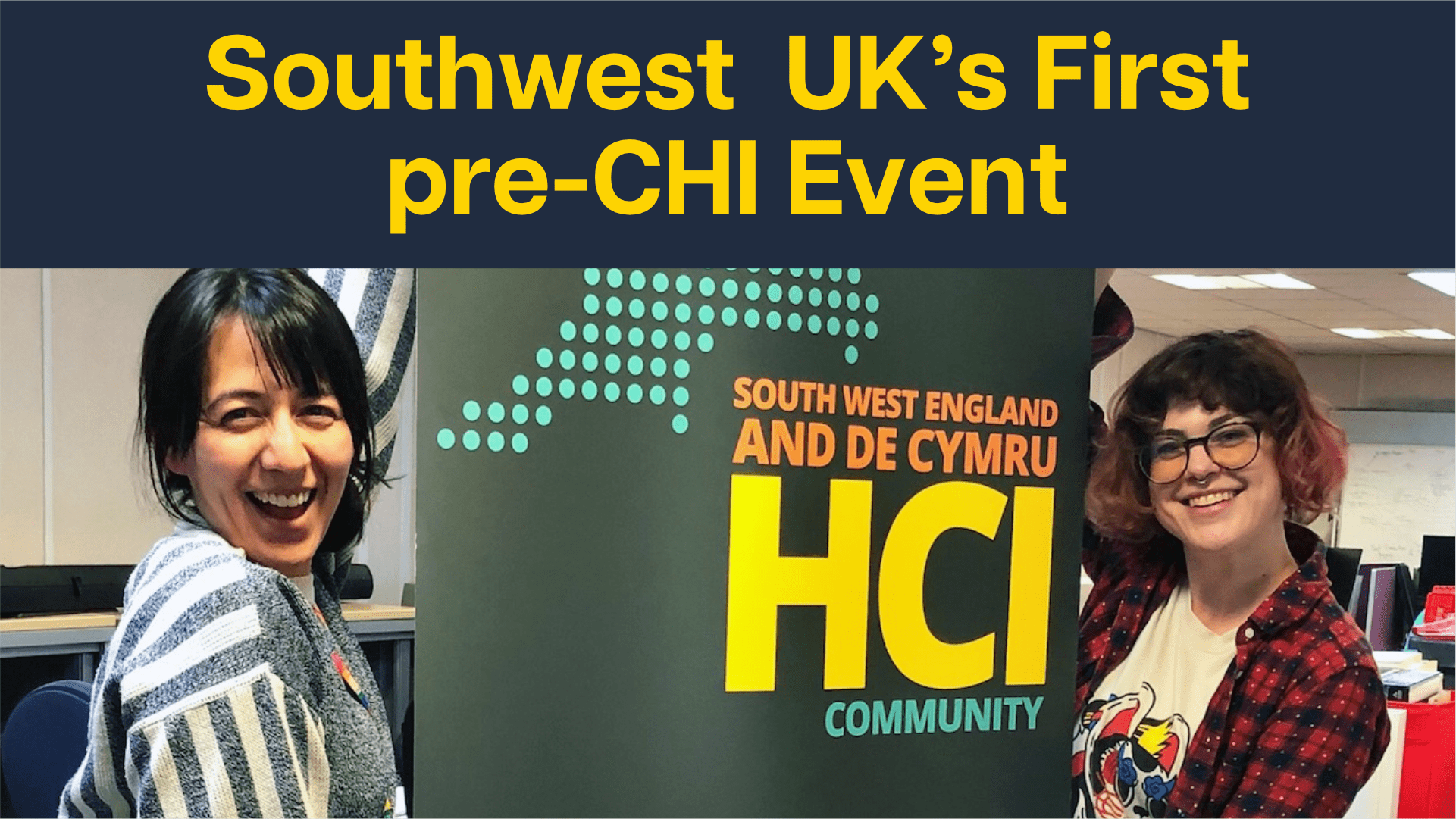
April 25th and 26th 2024 saw the first ever SW UK pre-CHI event, held on the University of the West of England (UWE) campus in Bristol. With funding from the GW4, Bristol Interaction Group, and the University of Bristol’s School of Computer Science, this two-day event welcomed about 80 attendees with a goal of strengthening ties within the SW England and Wales HCI community.
For those who aren’t familiar with CHI, it’s the world’s foremost conference in the field of Human Computer Interaction, organised by the Association of Computing Machinery (ACM). It takes place annually in the spring, with this year’s conference being held on the 11th to 16th of May in Hawaii. There’s a growing tradition of holding regional pre-CHI events in the lead up to the official conference. Two of the most well-established of these in Europe are the Scottish and German pre-CHIs which have been running for many years now.
Drawing on inspiration from these forerunners, a group of HCI researchers from UWE, the University of Bath and the Bristol Interaction Group – a research group based at the University of Bristol, led by pro² network+ Steering Group member, Professor Anne Roudaut – came together to establish the SW UK’s first pre-CHI this year. Two of the organisers, Adwait Sharma and Cameron Steer, as well as many of the event attendees are members of the pro² network+. Organisers from the Bristol Interaction Group were Brooke Morris, Elaine Czech, Grace Stangroome, and Vanessa Hanschke.
Attendees represented a diverse range of HCI fields and institutions, including UWE, Bristol, Bath, Oxford, Cardiff, and Swansea Universities, UCL, and even the Massachusetts Institute of Technology (MIT). On the programme were a doctoral consortium, talks, workshops, and demo and poster sessions.

Professor Roudaut led a workshop entitled, ‘Bodystorm Your Ideal Fabrication Workshop’. It provided a dynamic and creative space for exploring the optimal setup of a fabrication lab. Attendees worked with tape, paper, and physical objects to imagine the ideal layout of equipment for prototyping, including working with emerging and unconventional materials or technologies.
The workshop was co-organised with Ollie Hanton, a Lecturer in HCI at the U. of Bath and research lead on the pro² funded project ‘Active Materials Library’.

Ollie also presented his paper at the event, entitled ‘DisplayFab: The State of the Art and a Roadmap in the Personal Fabrication of Free-Form Displays Using Active Materials and Additive Manufacturing’, co-authored with Professor Roudaut and pro² Steering Group member Professor Mike Fraser (U. of Bristol). The paper went on to receive an honourable mention award at CHI2024. Three other papers from the pre-CHI event also went on to receive honourable mention awards.
With a lively atmosphere that aimed to create an experience similar to the official CHI, the pre-CHI event was the perfect opportunity for those new to the field to get a small taste of what attending the larger conference is like. Participants in the doctoral consortium were able to strengthen their presentation skills and build the confidence they will need for presenting at larger-scale events in future. Attendees also reported that the smaller size of the SW UK pre-CHI allowed them to attend a more diverse range of talks and workshops than they would usually do at CHI. This enabled them to connect with other researchers from different areas of HCI who could become future collaborators, and who they may not have been as likely to connect with at the larger conference where people tend to stay within their own research niches.
With plans for the SW UK pre-CHI to take place annually, anyone who missed the chance to attend this year should keep an eye out for next year’s event in the spring of 2025. Learn more at the SW UK pre-CHI website or by registering as a member of the pro² network+. Membership is free and provides updates on events, funding calls, and networking opportunities for all those interested in low-volume digital device production.
